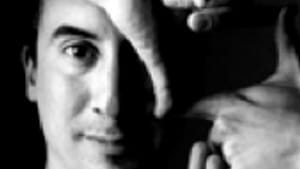Stay in the Loop
BSR publishes on a weekly schedule, with an email newsletter every Wednesday and Thursday morning. There’s no paywall, and subscribing is always free.
How do you solve a problem like the Nazis? (Well, you could try ignoring them)
"Fraulein Maria' by Doug Elkins (3rd review)

It's immediately clear that Fräulein Maria takes an untraditional approach to telling its story. As the overture plays, dancers unfurl swaths of Martha Grahamean jersey to create the Alps. Cue "The Hills Are Alive," and the mountains part to reveal a young woman in a simple aproned costume— obviously Maria, of The Sound of Music.
A second woman, of Asian descent, enters, wearing an identical costume. Another Maria? Apparently— and they're joined by a third Maria, a stocky black man. These three will share the lead role throughout the evening— sometimes together, sometimes in sequence.
This "more is better" approach to the casting is echoed in the jazz-based choreography, with plenty of athletic leaps and floor work, spiced with a hip-hop gesture here and a balletic extension there. This mélange of dance styles sometimes blends and sometimes clashes. In a show that's played for laughs, it makes for a cheerful mixture.
By comparison, consider Cabaret
The humor differs from song to song: It's arch in [How Do You Solve a Problem Like] Maria, transgressive in Edelweiss, and raucous in Climb Every Mountain. In this last piece, the vibrato-drenched vocal is nicely set off by a frenetic hip-hop solo by the show's creator, Doug Elkins.
The Lonely Goatherd is performed as a folkloric stomp-and-slap number that got me thinking about another Broadway musical that was set during the same interwar period. In the film version of Cabaret, director Bob Fosse intercut a similar (though more overtly "naughty") number by the emcee and the chorus girls with flashes of the Kit Kat Club's maitre d' being systematically beaten by a brownshirted crew on the stairs outside the cabaret. This one brief scene illuminates Cabaret's central theme: the rise of the Nazis.
Those vanishing Nazis
In The Sound of Music, the Nazis play a more stylized role, functioning mostly to advance the plot. And in Fräulein Maria, even the plot function is gone and the Nazis have completely disappeared, much the way the film version of Annie erased all references to the Great Depression. The incipient young Nazi Rolfe shows up for Sixteen Going on Seventeen but isn't seen subsequently, so we never experience the shock of discovering his political affiliation. In fact, Fraulein Maria makes no reference to anything happening outside the Von Trapp home.
This is certainly the creator's prerogative. Elkins said in a post-performance Q&A that "the dancing in the entire show is relational," and clearly it is personal relationships— specifically, gender relationships— that interest him. He called the cross-gender casting a way to "indulge in gender treachery"— an interesting word to use for such an aggressively apolitical work.
What's so "'treacherous'?
The problem is that gender roles aren't subjected to much of a challenge. Elkins's "treachery" consists of nothing more than men dancing women's roles. There was only one very brief instance of a woman in a man's role: three Captains and three Marias danced Something Good, and the third Captain was female.
It's intriguing that this song would have the only example of a woman in a male role, because it's also the only number in the show that's played more or less straight [sic]. The lack of jokes is welcome in this love song, though the tone is marred by a bit of business at the end in which a female dancer rather precariously catches a leaping male partner.
Elkins and his friends have been creating and recreating Fräulein Maria for several years. I'd love to see a future version in which they experiment more extensively with women in men's roles. In 2009, it takes more than men dancing in drag to make a point about gender politics.♦
To read another review by Merilyn Jackson, click here.
To read another review by Janet Anderson, click here.
A second woman, of Asian descent, enters, wearing an identical costume. Another Maria? Apparently— and they're joined by a third Maria, a stocky black man. These three will share the lead role throughout the evening— sometimes together, sometimes in sequence.
This "more is better" approach to the casting is echoed in the jazz-based choreography, with plenty of athletic leaps and floor work, spiced with a hip-hop gesture here and a balletic extension there. This mélange of dance styles sometimes blends and sometimes clashes. In a show that's played for laughs, it makes for a cheerful mixture.
By comparison, consider Cabaret
The humor differs from song to song: It's arch in [How Do You Solve a Problem Like] Maria, transgressive in Edelweiss, and raucous in Climb Every Mountain. In this last piece, the vibrato-drenched vocal is nicely set off by a frenetic hip-hop solo by the show's creator, Doug Elkins.
The Lonely Goatherd is performed as a folkloric stomp-and-slap number that got me thinking about another Broadway musical that was set during the same interwar period. In the film version of Cabaret, director Bob Fosse intercut a similar (though more overtly "naughty") number by the emcee and the chorus girls with flashes of the Kit Kat Club's maitre d' being systematically beaten by a brownshirted crew on the stairs outside the cabaret. This one brief scene illuminates Cabaret's central theme: the rise of the Nazis.
Those vanishing Nazis
In The Sound of Music, the Nazis play a more stylized role, functioning mostly to advance the plot. And in Fräulein Maria, even the plot function is gone and the Nazis have completely disappeared, much the way the film version of Annie erased all references to the Great Depression. The incipient young Nazi Rolfe shows up for Sixteen Going on Seventeen but isn't seen subsequently, so we never experience the shock of discovering his political affiliation. In fact, Fraulein Maria makes no reference to anything happening outside the Von Trapp home.
This is certainly the creator's prerogative. Elkins said in a post-performance Q&A that "the dancing in the entire show is relational," and clearly it is personal relationships— specifically, gender relationships— that interest him. He called the cross-gender casting a way to "indulge in gender treachery"— an interesting word to use for such an aggressively apolitical work.
What's so "'treacherous'?
The problem is that gender roles aren't subjected to much of a challenge. Elkins's "treachery" consists of nothing more than men dancing women's roles. There was only one very brief instance of a woman in a man's role: three Captains and three Marias danced Something Good, and the third Captain was female.
It's intriguing that this song would have the only example of a woman in a male role, because it's also the only number in the show that's played more or less straight [sic]. The lack of jokes is welcome in this love song, though the tone is marred by a bit of business at the end in which a female dancer rather precariously catches a leaping male partner.
Elkins and his friends have been creating and recreating Fräulein Maria for several years. I'd love to see a future version in which they experiment more extensively with women in men's roles. In 2009, it takes more than men dancing in drag to make a point about gender politics.♦
To read another review by Merilyn Jackson, click here.
To read another review by Janet Anderson, click here.
What, When, Where
Fraulein Maria. Choreography by Doug Elkins. Through November 14, 2009 at Zellerbach Theatre, Annenberg Center, 3680 Walnut St. (215) 898-3900 or www.pennpresents.org.
Sign up for our newsletter
All of the week's new articles, all in one place. Sign up for the free weekly BSR newsletters, and don't miss a conversation.

 Judy Weightman
Judy Weightman